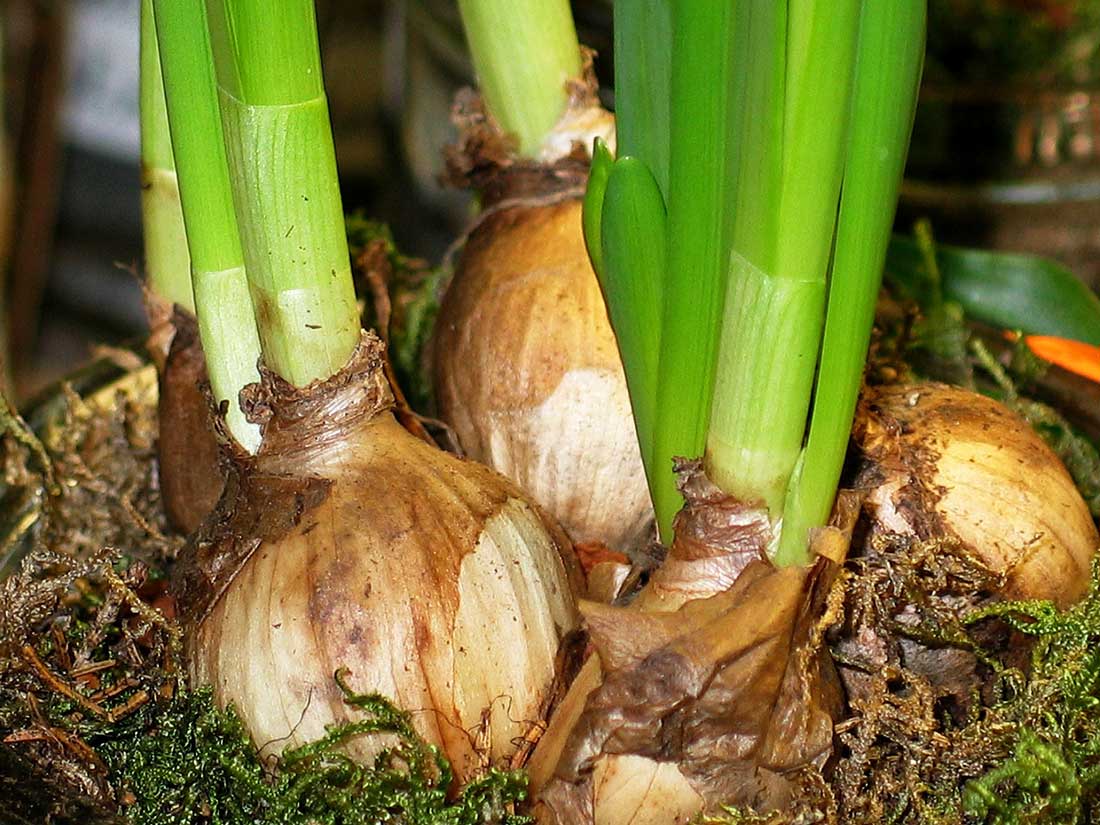Flower Bulbs
Learn the best way to get the most life from your bulbs
Celebrating the end of winter, vibrant spring flowering bulbs give maximum effect for minimum effort.
There is no limit to the number of bulbs that can be planted to give late winter and early spring colour and, with a bit of careful planning, there could be bulbs flowering in your garden right through to late summer.
Bulbs are always popular for the masses of flowers they produce and their fragrance. They are great for picking and can be grown in patio pots.
At a Glance:
- Planting in autumn for spring flowering and winter time for summers
- Flowering bulbs thrive in any well drained garden soil.
- Bulbs are a plants stored-up food supply for growth and flowering the next season. The term bulb loosely covers all bulbs and includes tubers, corms and rhizomes.
Bulbs are made up of layers of fleshy scales. Onions, Liliums and Daffodils are true bulbs.
- Corms are solid flesh, sometimes woody looking. As the corm grows bulblets are formed and the old one shrivels up and disappears. Gladioli, Freesias and Anemones are corms.
- Tubers are thickened shoots. The best known tuber is the Potato. Cyclamen and Begonias are also tubers.
- Rhizomes are fleshy creeping stems that produce roots and flower spikes. A good example is the Flag Iris.
WHEN TO PLANT
Most popular spring flowering bulbs such as anemones, hyacinths and daffodils are planted in autumn through to early winter.
Popular summer flowering bulbs such as dahlias and begonias are planted in late winter to early spring.
WHERE TO PLANT
Bulbs will thrive in most well drained soils. Most do not tolerate waterlogged soils for long. Japanese iris and arum lilies are two that will tolerate damp conditions.
If planting into a heavy soil, such as clay, add sand to the bottoms of the planting hole to improve drainage. Raise beds.
Plant in clumps, at random, scattered in the garden or under deciduous trees, in drifts of colour using combinations that complement each other, or in borders among annuals, perennials and shrubs.
Smaller delicate bulbs are better suited to rockeries.
HOW TO PLANT
The general guideline for planting is to plant the bulb to a depth equal to twice the bulbs diameter. For example, if a daffodil bulb is 5cm in diameter, the planting depth is normally 10cm.
Feeding
Use a specially blended bulb food such as Tui Bulb Food, or bone flour, for the best results.
Apply the food when shoots start appearing above the soil surface and again when flowering has finished.
This ensures plenty of flowers the following season.
Watering
With spring flowering bulbs, nature takes care of watering with rain.
Summer and autumn flowering bulbs may need additional water during their growing season to ensure a colourful display.
Mulching
All bulbs will benefit from a layer of mulch to keep the soil cool and moist. Apply a layer of mulch approximately 2cm thick soon after planting.
AFTER CARE...
When flowering has finished, let the leaves yellow and die down completely. The leaves contain the bulbs' food supply for the following season.

Lift bulbs:
- Bulbs can be lifted and stored at the end of the season.
- Lift bulbs if the soil gets very hot in summer as they are in danger of roasting, or if the ground freezes or is waterlogged in winter. Otherwise, lift bulbs just as the foliage starts to die down leaving leaves attached until they naturally dry off.
- Store bulbs in a cool dry airy room in a net bag or similar.
- A dusting of fungicide will protect the bulb in storage.
Most bulbs can be left in the ground for 2-3 years until they become overcrowded when they can be dug up, divided, replanted or stored.
PESTS & DISEASES
Bulbs are reasonably pest and disease-free.
Slugs and snails love new bulb shoots and flowers. Regularly apply Quash Slug and Snail pellets or Baysol pellets.
Other Uses:
- Bulbs are great for picking and their fragrance fills the room.
- Bulbs grow well in patio pots, tubs, and bowls. The best bulbs to grow in containers are daffodils, freesias, hyacinths, lilies, grape hyacinths, tulips, bluebells, crocus, begonias, dahlias, and calla lilies. Refer to the handy helper on container gardening for more information.
Shop Spring Bulbs Now by clicking HERE

11283